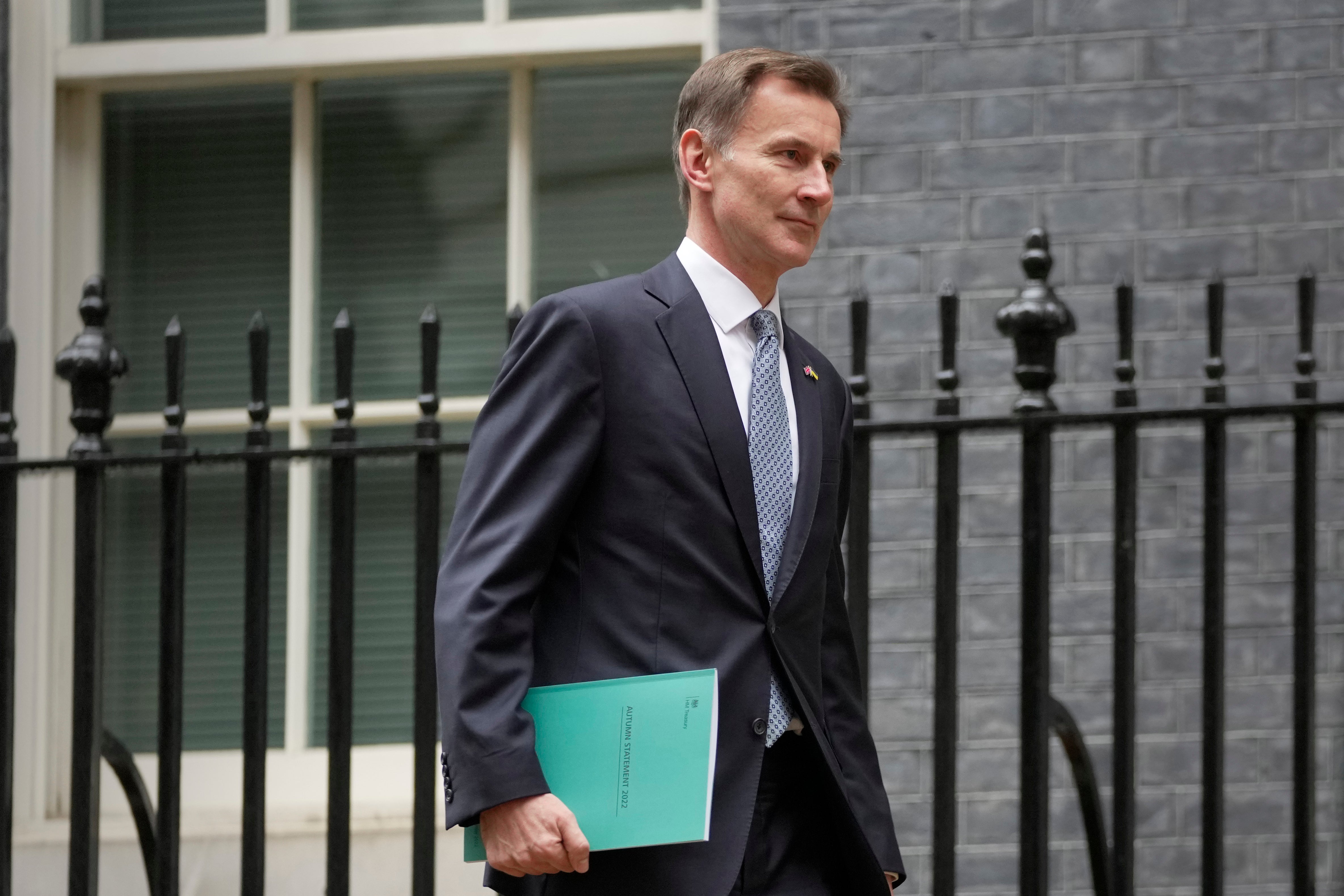UK economy grew in October but Jeremy Hunt warns of ‘tough road ahead’
Gross domestic product grew by 0.5% in October in a bounce back from a 0.6% contraction the previous month
Your support helps us to tell the story
From reproductive rights to climate change to Big Tech, The Independent is on the ground when the story is developing. Whether it's investigating the financials of Elon Musk's pro-Trump PAC or producing our latest documentary, 'The A Word', which shines a light on the American women fighting for reproductive rights, we know how important it is to parse out the facts from the messaging.
At such a critical moment in US history, we need reporters on the ground. Your donation allows us to keep sending journalists to speak to both sides of the story.
The Independent is trusted by Americans across the entire political spectrum. And unlike many other quality news outlets, we choose not to lock Americans out of our reporting and analysis with paywalls. We believe quality journalism should be available to everyone, paid for by those who can afford it.
Your support makes all the difference.The UK economy grew in October, new figures show, but the chancellor has warned there are still “tough times ahead”.
The Office for National Statistics (ONS) said gross domestic product (GDP) grew by a bigger-than-expected 0.5 per cent between September and October in a bounce back from a 0.6 per cent contraction the previous month.
The rebound comes after a contraction in September when output was impacted by the extra bank holiday for the Queen’s funeral.
It marks the biggest expansion since November 2021 and was more than the 0.4 per cent rise expected by most economists.
Jeremy Hunt, the chancellor, said: “High inflation, exacerbated by Putin’s illegal war, is slowing growth across the world, with the IMF predicting a third of the world economy will be in recession this year or next.
“While today’s figures show some growth, I want to be honest that there is a tough road ahead,” he said.
“Like the rest of Europe, we are not immune from the aftershocks of Covid-19, Putin’s war and high global gas prices.
“Our plan has restored economic stability and will help drive down inflation next year, but also lay the foundations for long-term growth through continued record investment in new infrastructure, science and innovation.”
It comes after September was affected by the lower number of working days due to the additional bank holiday for the Queen’s state funeral, and experts said the bigger picture is still one of a shrinking economy during the cost of living crisis, with the UK set to suffer a prolonged recession.
The ONS said the three months to October saw the economy drop by 0.3 per cent compared with the previous three months.

Darren Morgan, ONS director of economic statistics, said: “The economy bounced back in October, recovering from the impact of the additional bank holiday for the state funeral.
“In particular, car sales rebounded after a very poor September, while the health sector also saw a strong month, with GP appointments, A&E attendance and the Covid-19 autumn booster campaign all driving up the sector.
“Construction continued its strong trend over the last year and stands at its highest level on record, with new housebuilding driving growth this month. However, over the last three months as a whole the economy shrank, with falls seen across services and manufacturing.”
The Bank of England is still battling to rein in sky-high inflation that is weighing on growth, and is set to hike interest rates again on Thursday despite the worsening economic outlook.
Economists are pencilling in a rise from 3 per cent to 3.5 per cent – which would be the highest level for 14 years.
Suren Thiru, economics director at the Institute of Chartered Accountants in England and Wales, said October’s rebound was a false dawn for the economy.
“The positive start to the fourth quarter may not prevent recession with the growing squeeze on incomes likely to drive falls in GDP in November and December, despite a possible boost to consumer activity from the World Cup.
“A half-point interest rate rise on Thursday is expected. However, tightening monetary policy too aggressively could risk worsening the financial outlook for firms and households, and extend the looming downturn,” he said.



